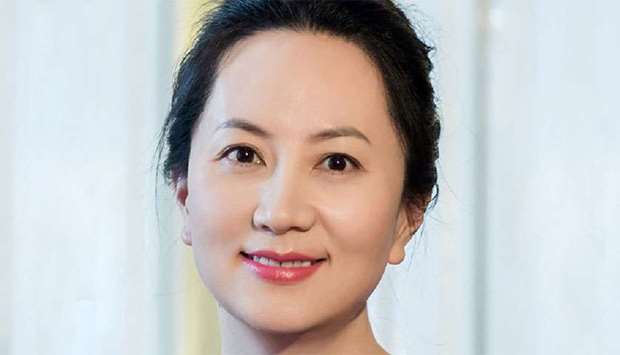China's Ministry of Foreign Affairs on Saturday slammed Canada's decision to proceed with the extradition of Meng Wanzhou, the chief financial officer of Chinese tech giant Huawei.
Foreign Ministry spokesman Lu Kang said Meng's ‘arbitrary’ detention ‘constitutes a serious violation of the legal rights and interests of the Chinese citizen. This is a severe political incident.’ He repeated calls for the US to withdraw its arrest warrant for Meng, who is scheduled to appear before a British Columbia court on Wednesday.
The US accuses Meng of defrauding financial institutions by concealing information about transactions with Iran. There are also wider accusations against Huawei, including stealing trade secrets from T-Mobile, a competitor.
‘There is sufficient evidence to be put before an extradition judge for decision,’ the Justice Department said in a statement.
‘An extradition hearing is not a trial, nor does it render a verdict of guilt or innocence,’ it added. ‘If a person is ultimately extradited from Canada to face prosecution in another country, the individual will have a trial in that country.’ Meng, who was arrested in Canada in early December, will remain free and subject to the conditions of her bond while the court proceedings are under way.
Meng is the daughter of Huawei founder Ren Zhengfei. Her case has strained relations between China, the US and Canada.
Two Canadians - former diplomat Michael Kovrig and entrepreneur Michael Spavor - were arrested in China following her detention, in what are widely believed to be retaliatory moves.
The Canadian government's decision also comes as the US and China try to negotiate a deal on trade, after the world's two largest economies slapped tit-for-tat tariffs on each other last year.
US President Donald Trump has suggested he could intervene in Meng's case if it helped resolve the trade dispute.
David Martin, the lead lawyer for Meng's defence team, said Friday's decision was disappointing, in a statement quoted by the South China Morning Post.
‘We are disappointed that the minister of justice has decided to issue an authority to proceed in the face of the political nature of the US charges and where the president of the United States has repeatedly stated that he would interfere in Ms Meng's case if he thought it would assist the US negotiations with China over a trade deal,’ he said.
The US is meanwhile reportedly pressuring its allies to stop using Huawei's equipment amid concerns that the Chinese government may have back door access to it, allowing them to monitor phone calls and other communications.
Australia has already banned Huawei from its 5G networks, while New Zealand and Britain are reviewing whether to allow it to proceed with 5G projects.

